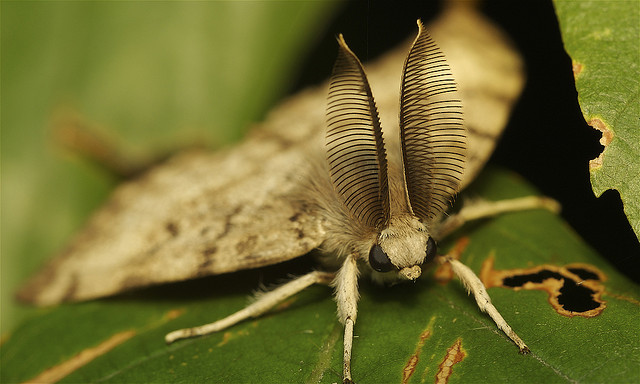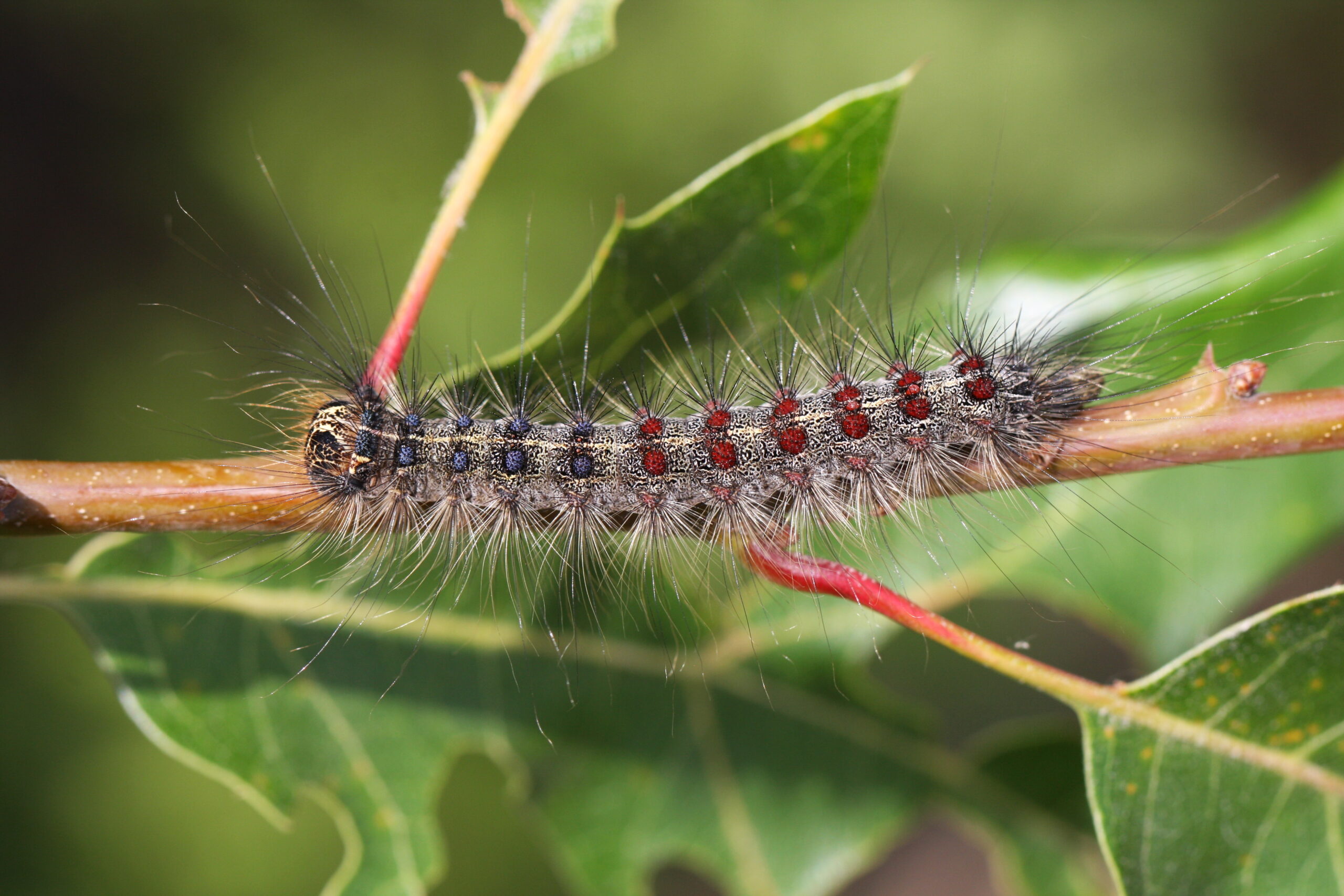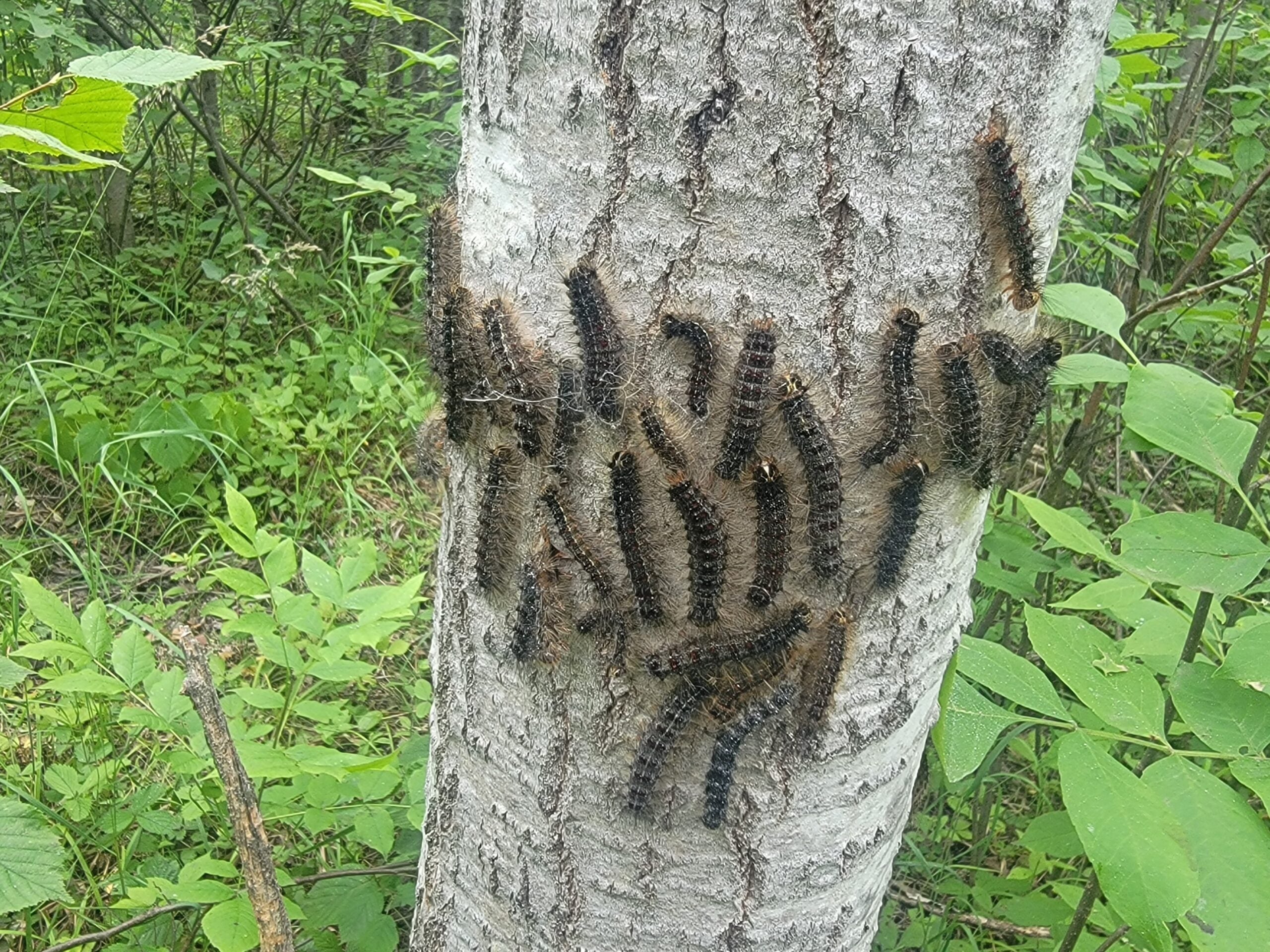Scientists have hailed the new common name for Lymantria dispar, now known as spongy moth. But they’re still trying to keep the invasive insect from spreading.
The moths can cause significant damage or death to numerous trees and shrubs by eating away leaves.
So, the state Department of Agriculture, Trade and Consumer Protection is preparing for its annual series of airborne spraying against the moth.
News with a little more humanity
WPR’s “Wisconsin Today” newsletter keeps you connected to the state you love without feeling overwhelmed. No paywall. No agenda. No corporate filter.
The agency has identified 57 sites in 17 counties for treatment this spring. Starting in May, planes will drop a naturally occurring soil bacteria to kill the moth’s caterpillars.
A second round of flights in the summer targets adult moths, said Christopher Foelker, a supervisor of DATCP’s Forest Pest Survey and Control Unit.
“The small waxy droplet releases the pheromone of this insect — it’s the chemical cue that the male uses to find the female — limiting the male’s ability to find the female and mate,” he said.
Foelker said neither round of spraying is harmful to anything except moths.
“There’s no concern for human health, pet health, anything like that,” he said.
As for the planes?
“They are loud, so you will notice them in that sense,” Foelker said.
In 2021, the Entomological Society of America dropped the name “gypsy moth” because it includes a term that’s considered offensive toward Romani, or Roma, people.
The new common name, announced earlier this year, removes the offensive language, and aligns the English name with those in other languages, which refer to the spongy-looking egg masses the moths leave on trees.
Wisconsin Public Radio, © Copyright 2025, Board of Regents of the University of Wisconsin System and Wisconsin Educational Communications Board.





